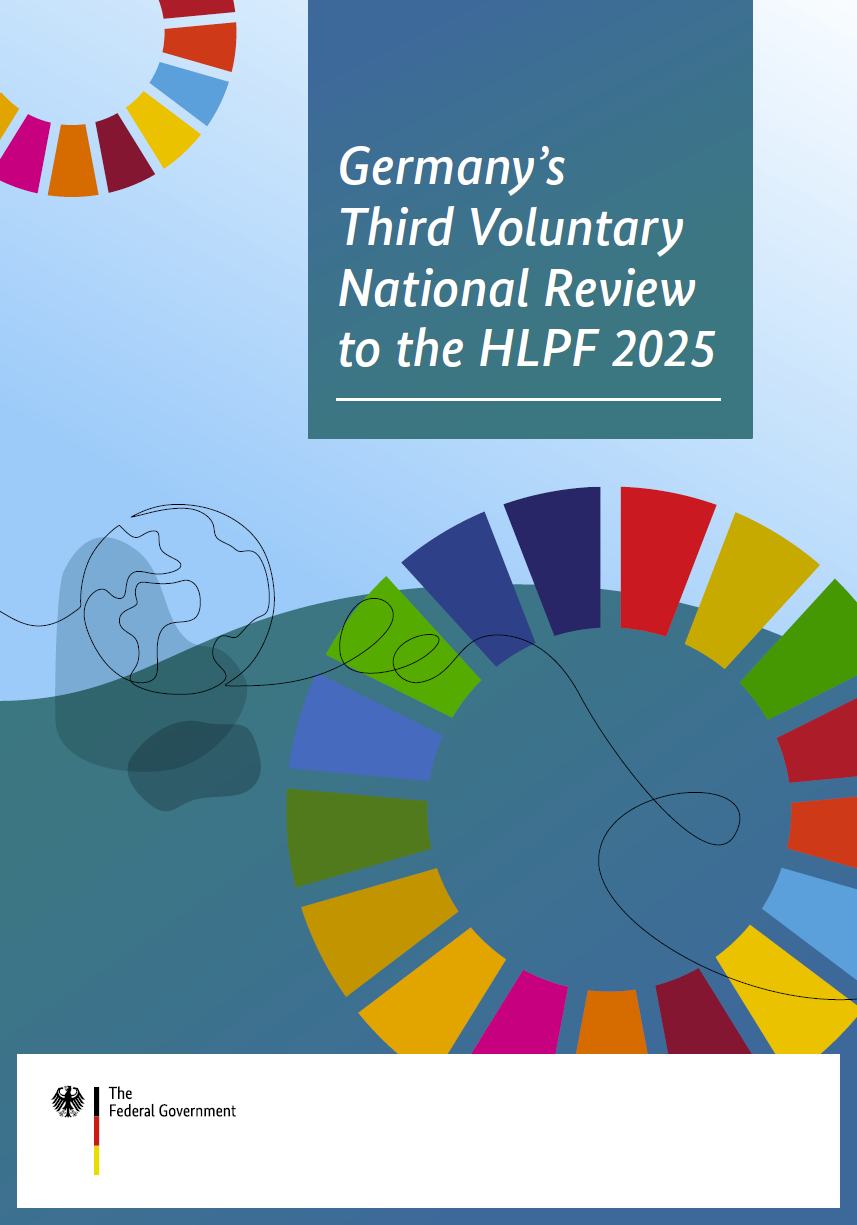VNR 2025
Joint contribution by the German NGO Forum on Environment and Development, Exit Plastic Alliance, Health and Environment Justice (HEJSupport), Forum Ecology & Paper, Women Engage for a Common Future (WECF) Germany, GenderCC – Women for Climate Justice, Zero Waste Germany, Heinrich Böll Foundation
In recent years, Germany has made some landmark political decisions in its climate and energy policies. They include, for example, closing down the last nuclear reactor in 2023, which was the final step in phasing out atomic power. Germany’s and the EU’s exit from the Energy Charter Agreement in 2024 is also an important achievement. With this step, the Federal Republic of Germany has left the biggest and most dangerous investment protection agreement in the world – explicitly because it makes necessary climate protection measures more difficult. Furthermore, Germany played an important role in the EU’s exit from the agreement as well. At the same time, however, Germany has agreed to new EU free trade agreements that contradict its position regarding the Energy Charter Agreement, like excluding fossil investments from the investment protection. Despite all the conflicts and necessary tightening, among other things, of the right measures, a sustainable energy policy and tackling the climate crisis remain high on the political agenda.
Loss of biodiversity and the pollution of the planet are not discussed and politically addressed to anything like the same extent. The economic need to justify more growth because of a supposed recession is the main reason offered for this focus. However, the crises are tied together; they are mutually reinforcing; and they endanger our prosperity. A solution or a turnaround on environmental policy must keep the planetary triple crisis in mind in all areas. Social aspects must also be given more consideration in all deliberations, and more specific attention must be given to the diverse impacts of the crises on different population groups and stakeholders.
Take plastics and chemicals, for example: up to 16,000 chemicals are present in plastics worldwide. A quarter of these chemicals are known to be harmful for people and the environment; nothing is known about the potential harm of more than 10,000 chemicals. Chemicals migrate from the plastic and enter into human bodies and into the environment, they accumulate in food chains and pollute ecosystems. At the same time, because plastic is a fossil-based product, its production and use are responsible for a considerable share of greenhouse gas emissions. By 2050, it is likely that the production and use of plastics will consume 13 per cent of our remaining carbon budget in a 1.5°C scenario. Besides reducing the production and use of plastics, the German government needs to campaign for a ban on using chemicals in plastics that are harmful to health and to the environment, especially those that are persistent pollutants (e.g. PFAS) or that impact on the hormonal system of humans and animals (EDCs). What is more, Germany must campaign at the European, national and international levels for export bans, strict regulation and a ban on harmful chemicals. That is also a goal in the Global Framework on Chemicals, which Germany is ambitiously supporting. Yet chemicals which are banned in Germany because of their dangerous properties continue to be exported to countries with lower standards and less regulation.
Contributors:
- German NGO Forum on Environment and Development
- Exit Plastic Alliance
- Health and Environment Justice (HEJSupport)
- Forum Ecology & Paper
- Women Engage for a Common Future (WECF) Germany
- GenderCC – Women for Climate Justice
- Zero Waste Germany
- Heinrich Böll Foundation

